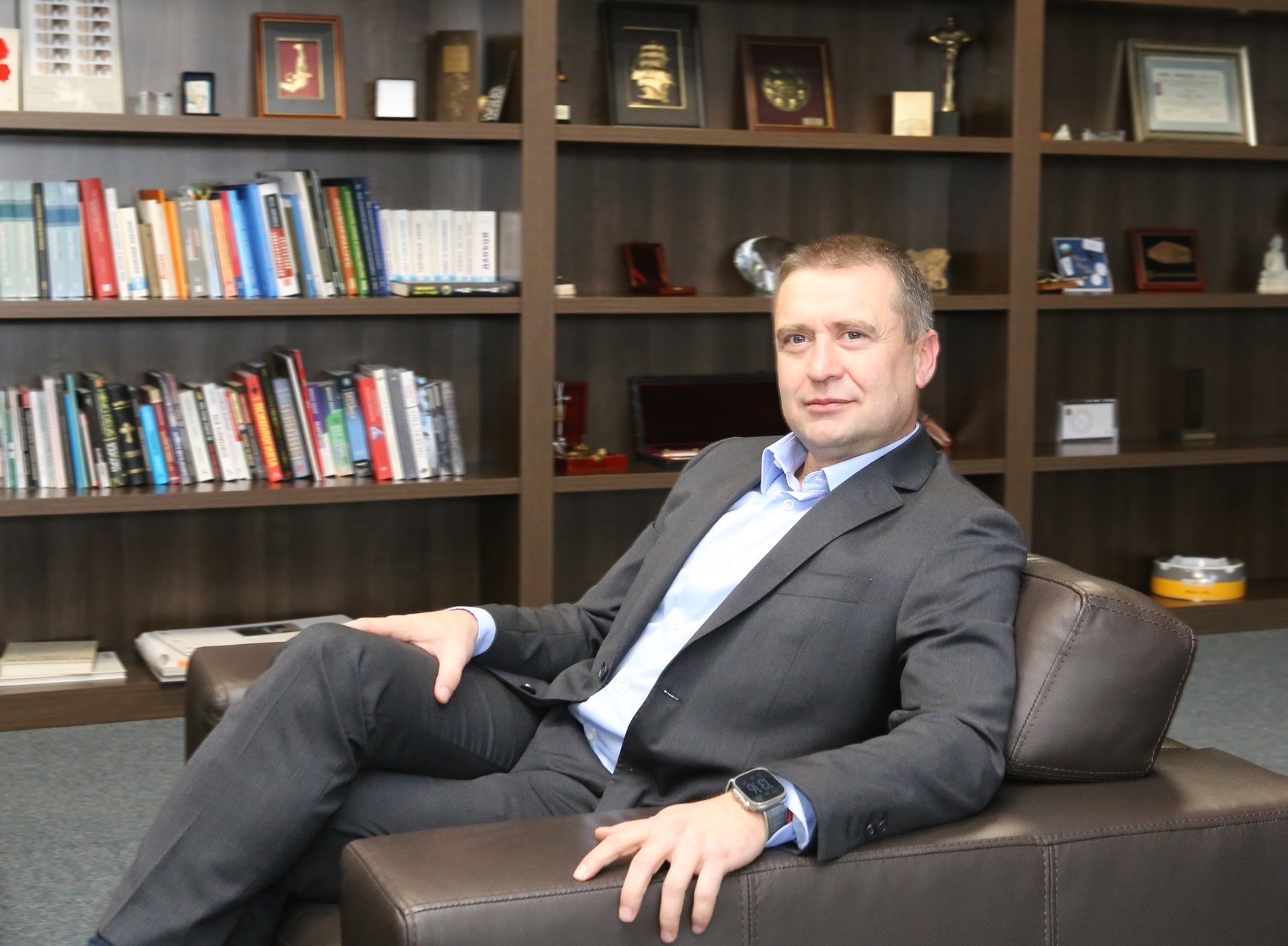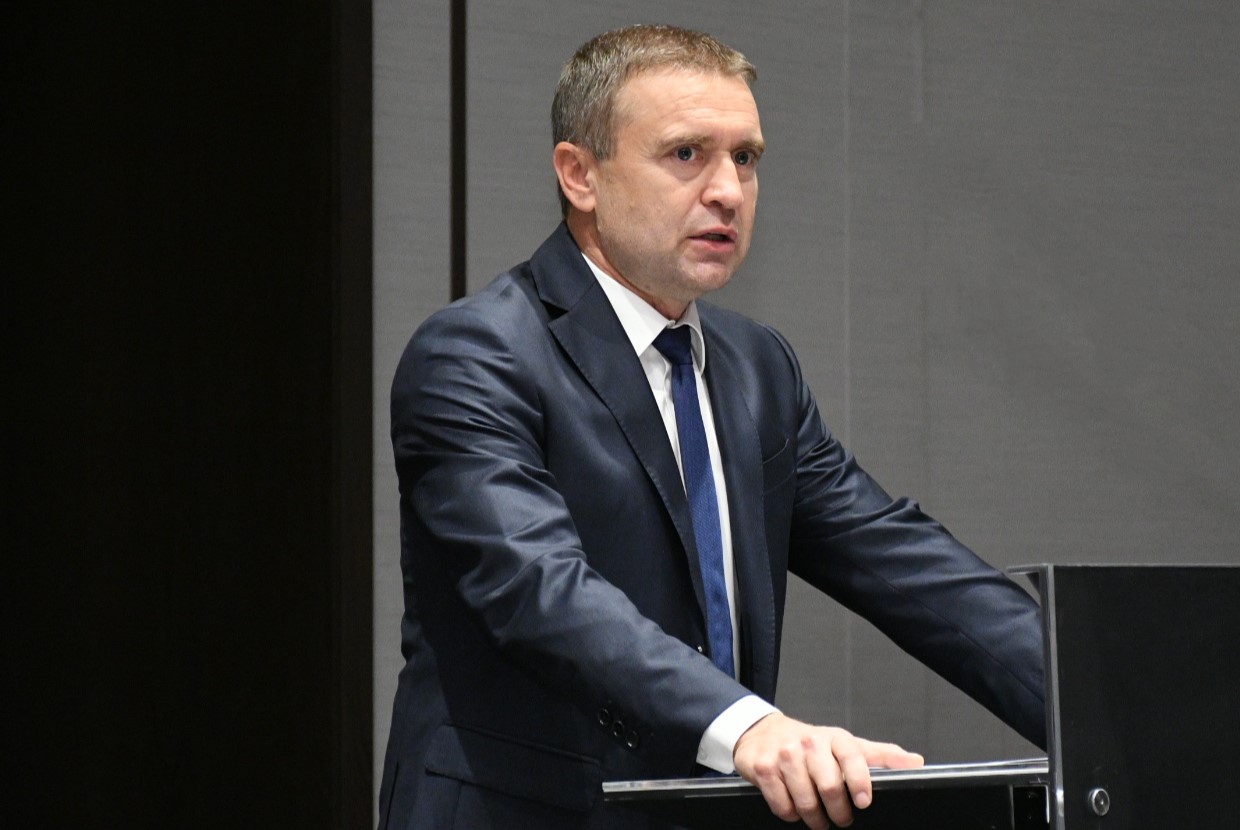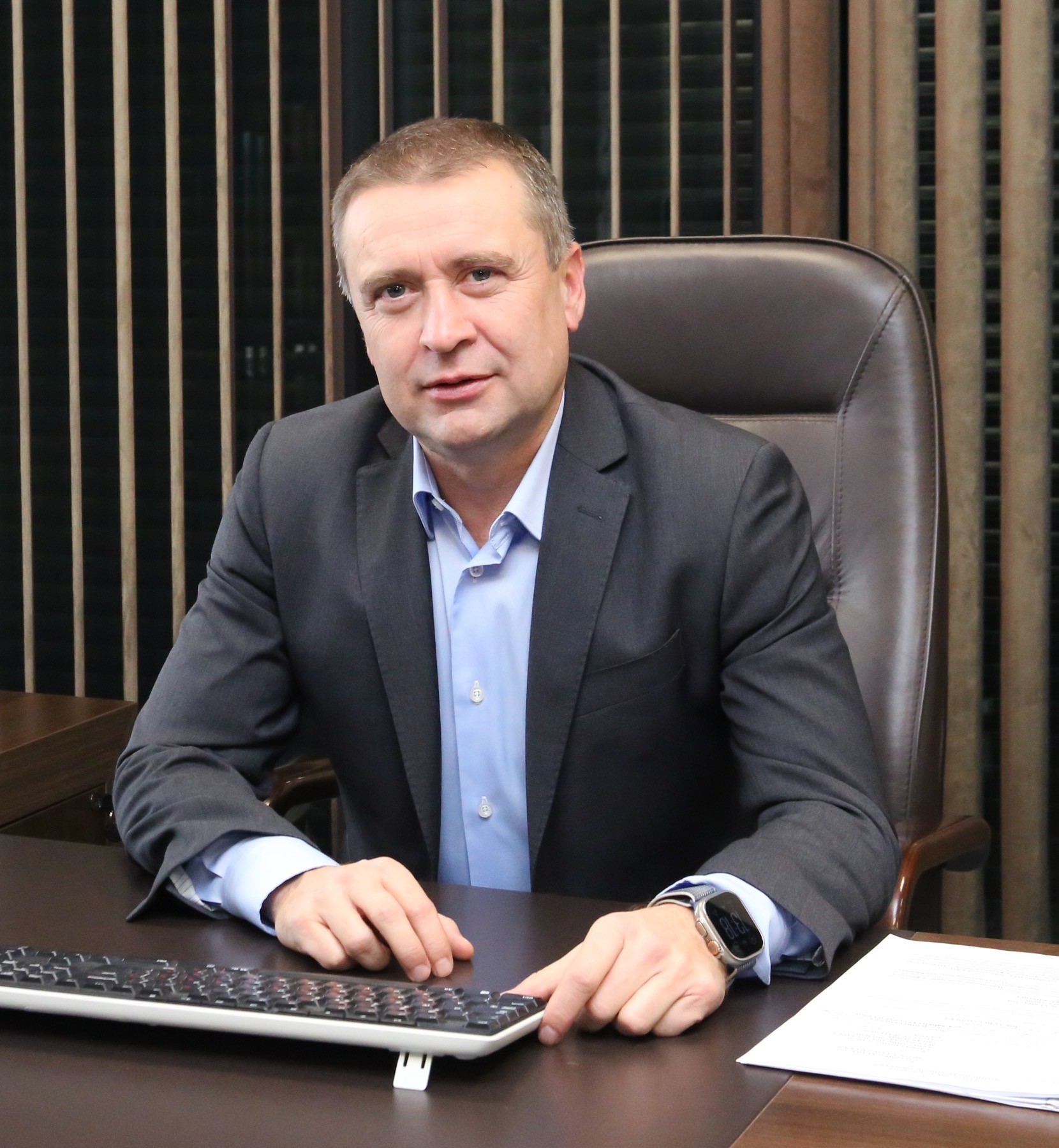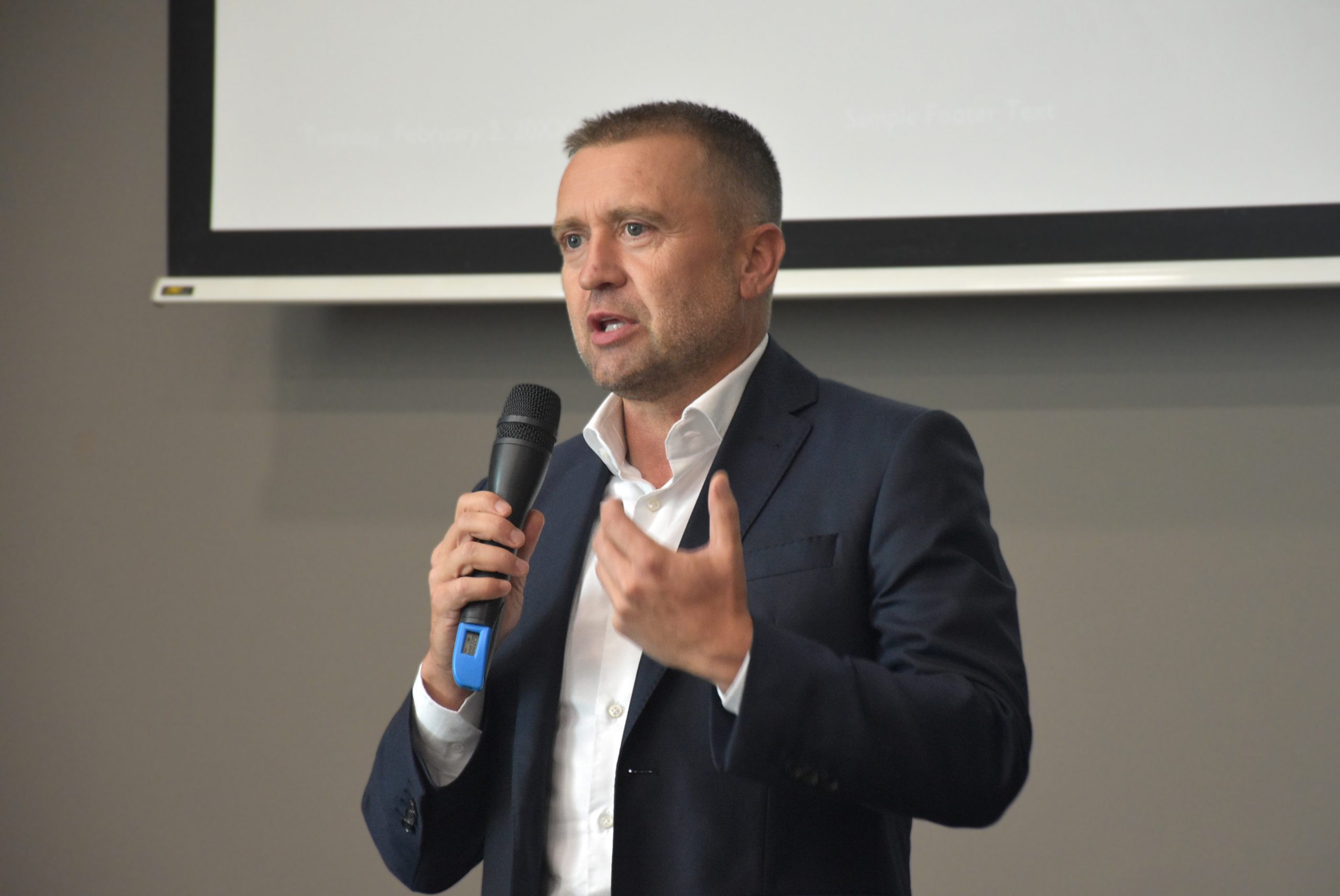The Financial Supervision Commission is a firm, unbiased and independent regulatory body
Mr. Boyko Atanasov has a master’s degree in “Planning and prognosis of the economic systems” awarded by the University of National and World Economy, as well as a rash of specializations in the economic sphere made both in Bulgaria and abroad. Owing to his over twenty years of experience gained in the National Revenue Agency, which is a specialized state body under the Ministry of Finance, Mr. Atanasov is one of the top experts in the taxation area. After having occupied various expert and management positions in the income tax administration he was nominated for and acted as managing director of the National Revenue Agency over a four-year period.
The professional career of Mr. Boyko Atanasov passed through the post of deputy minister in the Ministry of Finance responsible in charge of the department of state taxes and customs. In 2017 he has been designated Vice-Chair of the Financial Supervision Commission responsible for the “Investment Activity Supervision” Department, and in 2019 the Bulgarian National Assembly entrusted him with the position of Chair of the Financial Supervision Commission.
Mr. Atanasov, when we roll the film tape back, how and why did you make you decision to focus on the economy, in particular on the income tax administration?
In my view, the economy is one of the most promising professions, and at the same time, it is an occupation, which provides many opportunities for personal development. I feel confident in the economy because I am talented in mathematics, reasoning, detecting causalities and making analysis. All of them are at the basis of the economic processes. As regards the income tax administration, my decision was well-pondered. After graduating the University of National and World Economy, I seized the opportunity to candidate for a job position together with other candidates, taking into account that such a huge institution provided good prospects for development. From my point of view, it was a professional choice for a forthcoming quarter of the century.
Which are the most difficult and the most exciting challenges, which you have ever bumped into during your career?
At the beginning of my 20-year career as income tax administration officer, I first started from the lowest degree acting as tax inspector. Afterwards, I gradually passed through over eight positions of the hierarchy for a sixteen-year period, until I was appointed managing director for the period 2013–2017 having at command more than eight thousand officers, who were responsible for the taxes and social insurances administering in Bulgaria. I gained invaluable experience, which allowed me to recognize in detail all activities performed by the tax administration, such as serving citizens, collecting revenues and exercising control. The knowledge of these processes predetermined my perception of the things functioning or not, thus which of them had to be improved. I was convinced that there was a necessity of change, so it pertained to my career path and responsibility.
Actually, my greatest challenge consisted in the resistance on the part of the system to the integration of the new ideas, which meant that the officers had to leave their comfort zone. Day after day, month after month, I pursued my goal to persuade, to provoke, to find the right people who act as process engine, so that we make the change together.
There were three main challenges, which my team and I met, but I think that we successfully overcame them. The first of them concerned the digitalization process. In 2016, the National Revenue Agency became a body offering the highest percentage of electronic services in Bulgaria.
The second one of them concerned control functions, insofar at that time we built the information control system up, through which revisions are random distributed and assigned to the respective officers. We minimized in this manner the opportunities for corrupt practices and boost the confidence in the authority.
In the third place, we improved the main activity of the income tax administration, which is focused on collecting taxes and social insurances. We enhanced the collectability through provoking consciousness of the National Revenue Agency clients suggesting them that it pertains to their responsibility, so in 2016 we achieved over 85% voluntary payments of declared liabilities. It was for me an actual change in the way of thinking of our society, to which we came up after several years of collection and sustainability of best practices.

THE CONFIDENCE AND PERSONAL OBLIGATION TO CONTRIBUTE TO THE SOCIETY ARE OF MAIN IMPORTANCE
How did you succeed to convert the National Revenue Agency into a functioning body, which effectively collects its revenues and offers up-to-date electronic services to consumers and business?
A new manager usually pays attention to transformation. I always focused upon the sustainability of processes, which had become already effective. I was acquainted with them because I knew the way each of them had been functioning in the structure of the National Revenue Agency.
The second aspect of my conception scheduled an analysis and integration of the worldwide best practices. In a four-year period, we invited strategic directors and officers of the most effective revenue administrations worldwide, such as the English, the Dutch and the Swiss one, to take part in several practical workshops. We were taught by them how plans should be effectively carried out, so that it aided the National Revenue Agency in rebuilding a more effective organization.
The third aspect of my conception concerned the leadership skills among the managers in the National Revenue Agency. Over a several year period, our leading managers had been attending individual coaching meetings, after which they became single staff instructors. I believe that this circumstance predominantly contributed to the change of handling and the behavior toward citizens. The Agency activities became visible through the quotidian and clear communication with people, so that we succeeded in reducing the administrative burden for the business. In my opinion, the slogan of the National Revenue Agency “Responsible today, safe tomorrow” symbolizes until nowadays the positive outcomes, teamwork and transparency in the Agency activity. In my view, the most significant event was the joint survey conducted in 2016 by both the Bulgarian Industrial Association and Gallup International Center for Public and Political Studies, which highlighted the National Revenue Agency as the leading Bulgarian authority enjoying the highest degree of citizens’ trust, namely over 50%.
Which leadership skills are necessary to become a top-level manager and to lead great teams?
In my opinion, each leader should be able to take on responsibility, to create a personal vision on development, in order to evaluate and integrate best practices after having analyzed and examined their impact on every single element of the system. However, mostly he/she should be able to communicate with his/her staff, with citizens, with clients and with each service consumer who raises a question or makes a good proposal. My main values consist of confidence and personal engagement to contribute to the development of the society. If you provide your confidence, you will enjoy the trust of the others. Thus, teach your officers so well, that they always have the option to leave and go on, but let your behavior toward them be so good, that they never make use of this option. Being executive manager or commission’s chair means to have a vocation for serving, contributing to a cause and developing it further.
“To stimulate creativity means to provoke the cogitation of your team because it is source of business ideas.”

What did you succeed to change and to improve in the activity of the FSC?
In reference to the digitalization, we developed and stand at the beginning of the exploitation process of the Unified Information System. It serves both the Commission and the supervised persons. The whole communication process will be carried out via electronic means, inclusively that with other bodies. It concerned an obligation of mine whose performance marked one more step, which we made to an improved operative communication between the authorities and the supervised persons. In consequence of this, the FSC is going to provide prompt and quality services when performing its regulatory activity and will secure transparency, as well. In this regard, we introduced a mobile application and a new website, which we shall further develop.
We established the FSC as a firm, unbiased and independent regulatory body whose positions in the society are well-founded, especially as regards the activity areas of its three divisions, each of them responsible for respective area in the non-banking financial sector. We also improved our external communication, so that currently we provide accurate information in due time, since we have to be an accessible authority, which is capable of conducting dialogue in order to be adequate and business-oriented. We brought into action new effective measures and mechanisms for establishing a foreseeable regulatory activity and preventive control. Furthermore, we strengthened the risk-based supervision, as well as the coordinated supervision, in case where other bodies take part in its performance. We also succeeded in achieving the point at which Bulgarian insurers maintain adequate level of their reserves, whereat they fulfil the requirements on insolvency set in the Insurance Code. We control pension funds’ investment portfolios in a manner allowing their proper structuring and strong diversification. At the time, they have adequate reserves at their disposal, which ensure them payout of lifetime pensions. I believe that FSC maintains an extremely adequate position in reference to crisis cases and acts in best coordination with the international bodies.
In your opinion, which role in the future will play new technologies in the financial markets development?
The technologies function as both catalyst and momentum, as regards the financial industry design. They change financial markets, while the artificial intelligence and the development of IT environment assume more and more significant role in the trading algorithms and the risk management. In the financial area, they signify our contemporary and future status. Thus, I would like to point out our main task. Technologies will continue to develop at extremely spanking pace, therefore the financial services industry is in charge of balancing between innovations, consumer security and stable supervision, which is necessary to protect market integrity. Therein lies the most important role played by the Financial Supervision Commission – guaranteeing stability and safety and supporting business development and consumer services.
“THE POWER IS A TOOL FOR STATE AND INSTITUTIONS DEVELOPMENT. IT IS MOTIVATION TO ACHIEVE RESULTS, BUT NOT AN END IN ITSELF”
Mr. Atanasov, as regards both your personality and profession, do you have a role model which you are following, i.e. is there any person you were taught by, or whose achievements you had been admiring?
Sure. I was taught by my parents. The parental pattern serves as a signpost on our way, which we have to consider. I also learn from people which I have chosen to share my life with, namely from my family and my friends. It is sensible when you can everyday learn something new and upgrade, instead of making for yourself idols!
How do you take a rest after the strained daily routine? Do you practice any sports? Do you have any hobbies?
The more dynamic the day, the calmer should be the time we dedicate to ourselves. In my view, the time out of the office should be spent for rest and recreation, walks in the nature, good food tasting, meeting friends etc. Nowadays, more than ever, we could combine many pleasant occupations like recreation through watching a nice movie, a walk with an audio book, going on a journey, spending time with friends etc. I do adore the communication with my children. They are curious and cosmopolitan, pose many questions and so you see how they upgrade their knowledge.
Which are your favorite destinations for spending pleasant holidays or for a weekend trip?
In my opinion, trips give you the opportunity to discover new horizons, to get away from your daily routine, to focus on the bigger picture, and sometimes to think about issues, which I never succeed to enclose in my structured timetable. The place which usually boosts my energy, especially in winter, are the Rhodope mountains. The village of Gela is a marvelous start point for walks or for more ambitious mountain hikes. In the summer time, it is turn of other two mountains – Strandzha and Sakar where I usually spend at least a weekend in each of them. I like to travel about Bulgaria and Greece. We have marvelous mountains and gorgeous beaches. Our most important mission of parents is to reveal the beauty of Bulgaria to our children, so that they grow up cultivating their love for the homeland.
Would you tell us anything more about your family! How do you intend to spend Christmas and New Year holidays?
I have a great and warm-hearted family. As you know, holidays are the time for family traditions and much calmness in your home’s ambience. My parents are wonderful persons, my children are curious, so the time spent with them is invaluable. I believe that the forthcoming holidays will be time for tranquility, shared emotions and repose.
What would you wish for yourself and all Bulgarians for the upcoming New Year 2024?
I wish for ourselves to believe more strongly that tomorrow Bulgaria will become a better place to live in. Moreover, to be responsible today, to build up, to create, to support new ideas, to provoke peoples’ development, as well as the one of the business and the state. But first of all, I wish for myself to give more opportunities to people who need them, so that more innovative ideas, new trends and life security in Bulgaria come into being.

